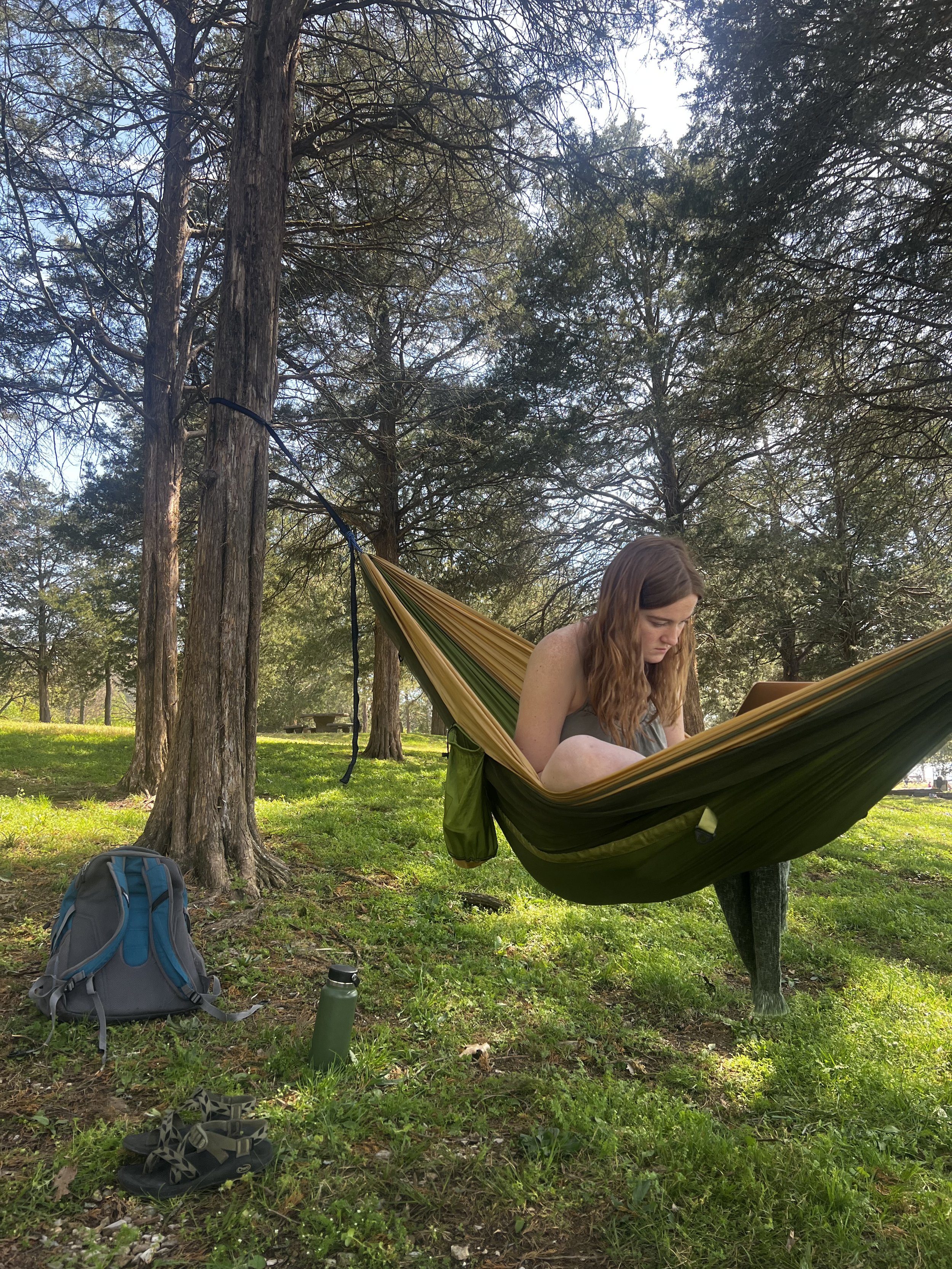What’s Your Type? Let Us Help You Find It.
When it comes to studying, you’ve got to find what works. This blog will help.
A blog around education and types of learning styles
Being a student is no easy endeavor. The lectures, papers, projects, research, and presentations can be a doozy. It puts the mind to work leaving your brain mush. Just like training your body builds muscles, exercising your brain makes you intellectually stronger. While college can really push your mental capacity, knowing where your intellectual strength lies can help you formulate a strategy to stay on top. Ever have that time where you spend hours reading your notes over and over again, only to realize nothing really sticks? Then, when you take the test you remember what your teacher said during the lecture, but missed the questions from your textbook reading? If so, you may have spent too much time studying in a less conducive learning style instead of capitalizing on your strength as an audial learner. Identifying your strengths and weaknesses will help you better maneuver how to take in information and how to organize yourself to demonstrate what you’ve learned.
Gardner’s Multiple Intelligences. Image by Simply Psychology.
Gardner’s Multiple Intelligence Theory
While there are a variety of models to look at when approaching this topic, let’s start with the one who originated the theory of multiple intelligences - Howard Gardner. In the 1980’s Gardner published a book called Frames of the Mind: The Theory of Multiple Intelligences in which he listed nine types of intelligences. He proposed there are multiple fields of intellect and students. While reading through these intelligences, consider how these may apply to you to see if you can discern which ones you excel in and where you may be lacking. There are several online assessments catered toward multiple intelligence that help in this regard. Here are the nine intelligences his theory proposes:
People with visual-Spatial intelligence are good at learning via visuals and charts.
Visual-Spatial
You may have visual-spatial intelligence if you are good at recognizing patterns or deciphering data from graphs and charts. As the name suggests, they are often good at visualizing ideas and concepts.
Study Tip: Try mind-mapping and taking hand-written paper or iPad notes where you can doodle, draw diagrams, etc.
Those with linguistic-verbal intelligence are natural readers and writers.
Linguistic-Verbal
Linguistic-verbal has to do with words and speech, and thus someone who possesses this intelligence may be good at understanding concepts through listening to a teacher or reading in a textbook. Writing and orating skills may come more naturally to them.
Study Tip: Talk it out with friends, use speech to text to record quick ideas and thoughts on assignments, or journal what you’re learning to make sure it’s getting to your heart.
Those with interpersonal intelligence enjoy learning in groups and understand others easily.
Interpersonal
Interpersonal intelligence has to do with your ability to read social situations and understand others. Maybe you are good at reading social cues or can see things from another's perspective.
Study Tip: Organize a study group with your friends and dialogue to process course materials. Try speech to text as a starting point for homework assignments.
Interpersonal intelligence means you’re adept at understanding yourself.
Intrapersonal
Intrapersonal is almost the opposite of intrapersonal, rather than being able to read and understand others, you are aware of your thoughts and feelings. Being self-aware of your beliefs, emotions, and other inner workings of your mind is all a part of intrapersonal intelligence.
Study Tip: Keep a journal to map out your thoughts and feelings in reflection courses. Set goals for yourself and then reflect on your journal and goals as you progress.
Logistical-mathematical intelligence includes rational thinking and problem solving.
Logistical-Mathematical
You assume right if you think it has a lot to do with numbers, but it’s not limited to only that. Yes, finding numerical patterns and doing math equations in your mind does fall into this category, but so does rational thinking and problem solving. Being able to think abstractly also reveals some logistical-mathematical intelligence.
Study Tip: Create an organizational system for your course notes and use tables to make connecting observations. Set time-connected study goals for yourself with a strategic rewards system.
Musical intelligence includes your ability to remember and recognize patterns in music.
Musical
Beethoven may be a good example of someone who had outstanding musical intelligence, however, you don’t have to worry about comparing yourself to him, cause he was quite exceptional. But if you are able to appreciate his compositions because your ear is tuned to identify the notes he used to construct a bone chilling crescendo, then you may display some musical intelligence. Even being able to easily remember melodies or recognize certain sound patterns could demonstrate some musical aptitude.
Study Tip: Listen to music to motivate yourself while studying and doing homework tasks. Spend time during breaks refueling through music.
A bodily-kinesthetic learner utilizes their body as a part of the learning process.
Bodily-Kinesthetic
Many athletes have this type of intelligence, as they have learned what their body’s are capable of and how to use them. It could be fine motor skills, balance, hand-eye coordination, or a myriad of other body movement related tasks which reveal one’s bodily-kinesthetic aptitude.
Study Tip: Go on a walk while listening to a podcast lecture, and try a location with a standing desk so you have more flexibility to stretch as you study. Or reward yourself by finishing your homework and then getting some friends together for a game or two.
Those who are naturalistic learners understand natural things in easier ways than others.
Naturalistic
People with this intelligence tend to be good at identifying and organizing. In nature, this may come in the form of relating certain animals or plants to other similar species.
Study Tip: Go to the park or find a coffee shop with outdoor seating where you can set up shop and study. Listen to lectures on walks or hikes.
Existential
This has to do with how a person handles existential or deep philosophical questions about life. This one is sometimes left out of certain surveys and may be a bit more difficult to discern than some of the other intelligences.
Study Tip: Use a mind-map tool to connect key themes and big ideas to smaller takeaways throughout a course.
If you got through all that, but are still unsure as to what your top areas may be, take a look at this multiple intelligence inventory by Walter McKenzie to see if it can help you more clearly identify which categories are your strengths. In order to be a more effective student, you need to learn about yourself. Not only will you be able to capitalize on your strengths, but you could also focus on building up areas where you may be a bit weak. Depending on your field of study, some of these intelligences may be more applicable than others, but they all play an important role in our own intellectual development. For more of Gardner’s thoughts on the multiple intelligences, check out this video interview with him by Edutopia.
More on Learning Styles
Even though Gardner’s intelligences are often discussed as learning styles, Gardner himself has stated this is not the case. However, he does encourage teachers to “pluralize their teaching,” as it is helpful for teachers to present material in a variety of ways to allow students to get a better grasp of the subject matter. So while everyone has different categories of intelligences in which they may excel, learning styles refer to the methods involved in understanding the information presented.
Image by Advergise.
Two common learning-style models are VARK and Kolb. VARK reflects some of Gardner’s categories, as it classifies learning styles into four mediums: visual, audial, reading/writing, and kinesthetic. Those who are able to better understand and remember information through the specific medium, are said to have that type of learning style. For example some people are better visual learners and may quickly catch on to concepts presented through graphs or illustrations, but if their weakness is audial, they may struggle grasping concepts discussed verbally through a lecture.
While we all learn in different ways, we should be careful not to view our weaknesses as handicaps by believing that we are not doing well because a teacher is not presenting in a way that is conducive to our style. Instead, recognize you may have to work harder, and then put in the extra time to reformulate the information in a way that may be more suitable for you, or you can practice certain techniques to improve a specific medium.
Types of learners or learning styles is meant to help you learn better by being ok being yourself. Give us feedback in the comments if this article helped you!
Edutopia has pushed the idea that drawing is a great way to take notes during lectures as it can multiply the ways in which your mind holds an idea - through audial as you listen to the lecture, visual as you see it drawn, and kinesthetic as you do the act of drawing (and don’t worry, it’s not about the artistry, just the info). If you are interested in learning other helpful memory techniques, check out our blog: Got a Test Coming Up? Here are 6 Memorization Techniques to help you Prepare. So rather than using any potential weaknesses as an excuse for not doing well, try to use it as motivation to improve areas where you may struggle and find ways to overcome them. This may be a reason why Gardner suggests moving away from the term of “learning styles.”
On the other hand, if we look at the Kolb model we get a layout of the experiential learning cycle: concrete experience, reflective observation, abstract conceptualization, and active experimentation. By viewing your comprehension of topics in light of this cycle, it can help us work through ways in which we can better wrap our minds around certain concepts. If you are interested in learning more about Kolb’s experiential learning cycle, check out his book, Experiential Learning: Experience as the Source of Learning and Development.
Understanding educational theories and models can help us be aware of how we analyze and absorbintake information as well as how we can utilize our strengths and improve areas of weakness. If you want to do well in college, you have to be a good student, and if you want to be a good student, you have to be aware of yourself as a learner. So take the time to figure out your type, as it is more than worth it, as it sets you up for success in your educational journey.
Sources:
Northern Illinois University Center for Innovative Teaching and Learning. (2020). Howard Gardner’s theory of multiple intelligences. In Instructional guide for university faculty and teaching assistants. Retrieved from https://www.niu.edu/citl/resources/guides/instructional-guide
“Howard Gardner's Theory of Multiple Intelligences.” Northern Illinois University. (visited 24 March 2022)













